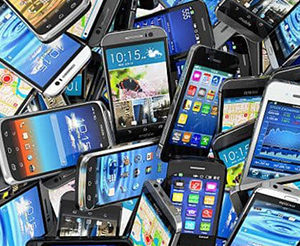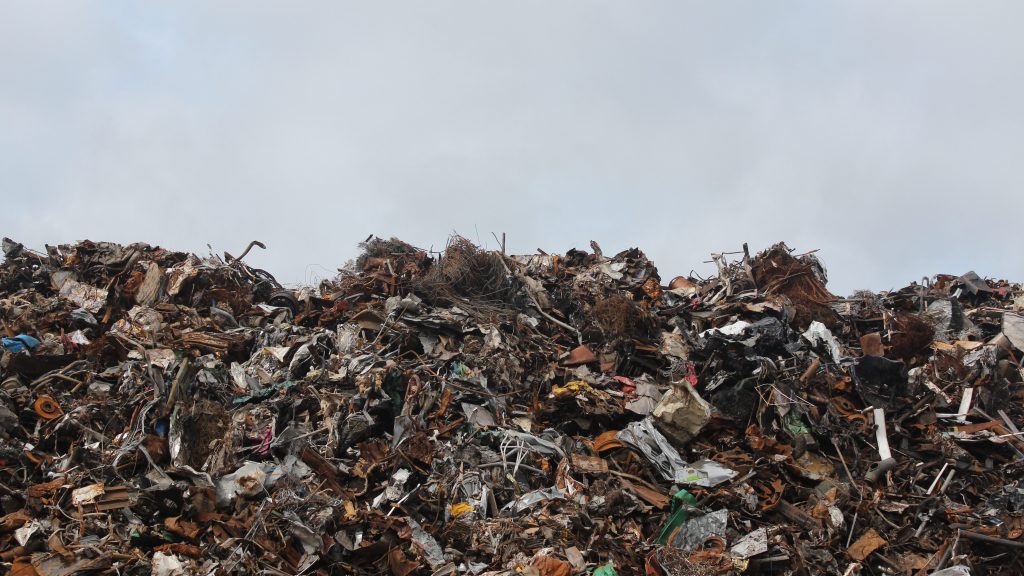The Urgent Need to Recycle More E-Waste: How ICT Reverse Can Help

A recent BBC Report has stated the recycling of electronic waste (e-waste) must urgently be ramped up because mining the Earth for precious metals to make new gadgets is unsustainable – a message that ICT Reverse has been promoting for many years.
E-waste is described as the disposal of any electronic devices and accessories like plugs, phones, computers, televisions and games consoles.
The report highlights how one study estimated that the world’s mountain of discarded electronics, in 2021 alone, weighed 57 million tonnes and bodies such as the Royal Society of Chemistry (RSC) say there now needs to be a global effort to mine that waste, rather than mine the Earth to collect it and has developed a campaign to highlight the unsustainability of continuing to mine all the precious elements used in consumer technology as current reserves of some key elements are simply running out.
“Our tech consumption habits remain highly unsustainable and have left us at risk of exhausting the raw elements we need,” said Prof Tom Welton, president of the Royal Society of Chemistry, adding that those habits were “continuing to exacerbate environmental damage”.
As an example there are a number of elements in smartphones that could run out in the next century:
- Gallium: Used in medical thermometers, LEDs, solar panels, telescopes and has possible anti-cancer properties
- Arsenic: Used in fireworks, as a wood preserver
- Silver: Used in mirrors, reactive lenses that darken in sunlight, antibacterial clothing and gloves for use with touch screens
- Indium: Used in transistors, microchips, fire-sprinkler systems, as a coating for ball-bearings in Formula One cars and solar panels
- Yttrium: Used in white LED lights, camera lenses and can be used to treat some cancers
- Tantalum: Used in surgical implants, electrodes for neon lights, turbine blades, rocket nozzles and nose caps for supersonic aircraft, hearing aids and pacemakers
In all, the amount of e-waste generated is growing by about two million tonnes every year. Less than 20% is collected and recycled despite the growing awareness of these issues by the general public who are showing a growing demand for more sustainable technology
Despite that the survey also suggested that people did not know how to deal with their own e-waste. Many respondents said they worried about the environmental effect of unused devices they have in their homes but did not know what to do with them or were concerned about the security of recycling schemes.
The volatility in supply chains at the moment really just reinforces the fact that we need a circular economy for all IT materials so we can recycle them safely and securely to reduce the reliance on mining important elements out of the ground constantly.

For businesses, this is where ICT Reverse comes in with its emphasis in safe and secure IT disposal practices which promote the recycling and reusing of the important elements contained in IT equipment and, of course, mobile phones.
At ICT Reverse, we believe in sustainability and in reducing environmental impact. Recycling e-waste with ICT Reverse is something we are committed to and we recycle all IT equipment, including mobile phones, in an eco-friendly way. We operate a zero percent landfill tolerance policy and work with Circular Computing which means your laptop disposal could result in 5 trees being planted for every laptop collected.
Our expert team of advisors are on hand to offer you the latest advice and guidance on protecting your data, GDPR, electronic recycling, e-waste, legislation and much, much more in relation to sustainability
Since 2001, ICT Reverse has developed a wealth of experience and constantly strive to be at the forefront of technological and legislation changes within the industry. No matter what your enquiry, we are happy to assist.
To see how we can help, go to our website or see our FAQ’s which may be of interest to you or call one of our team on 01524 580900 to see how we can help.
